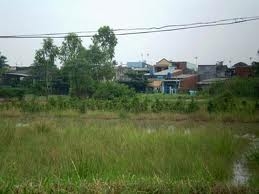Land-pricing to help clear land
 Under Article 12 of the draft amended Land Law, officially discussed for the first time by the National Assembly Standing Committee last week, the state was authorised to “fix land prices”. The timeline for the Nationa Assembly’s approving the amended law is unknown.
Under Article 12 of the draft amended Land Law, officially discussed for the first time by the National Assembly Standing Committee last week, the state was authorised to “fix land prices”. The timeline for the Nationa Assembly’s approving the amended law is unknown.
Articles 17 and 96 also said the state was entitled to “ordain the principles and methods to fix land prices,” in a way “suitable to the market price.” The state was also empowered to “enact price frames of assorted land, land price lists and determine specific land prices.”
“When there is a big price fluctuation in the market, price frames of assorted land shall be adjusted,” said Article 97.
Phan Trung Ly, chairman of the National Assembly’s Law Committee, said: “The draft new land price regulations mean a progressive outlook versus those carved in the existing Land Law issued in 2003. It is because they will keep investment projects far from sluggish site clearance and help the government lessen ever-growing land complaints.”
Under the current Land Law’s Article 56, the provincial/municipal people’s committees shall formulate specific land prices in their respective localities. Land prices shall be publicised on January 1 every year and used as basis for calculation of assorted taxes and fees related to land use.
But Deputy Minister of Transport Nguyen Ngoc Dong said this regulation had caused intense conflicts among those with reclaimed land and enterprises over the past years.
“Almost investment projects cannot be completed within a year, while localities trumpet new land prices every year. This means land complaints keep rising because when some people have just been compensated with a sum of cash at a fixed price in a year, a new bigger price level is applied in the next year, then these people will complain for more cash,” he said.
For instance, Nguyen Thi Tra, a farmer from Hanoi’s Xuan Dinh commune, had her rice cultivation land withdrawn 10 years ago for construction of a diplomatic residential and office compound project. However, she has been keeping her complaints to local authorities since then.
“The value of compensation cash has risen by tens of times. Moreover, while land in Phu Thuong district [nearby Xuan Dinh] and our land lots are sitting next to each other, the Phu Thuong land price is much higher. That’s unfair,” Tra said.
Many farmer households like Tra have refused compensation cash from authorities. This is one of the major causes behind the project’s snail-paced construction since 2002.
According to the Government Inspectorate, over 70 per cent of the public’s complaints involved land. Up to late 2011, 528 cases of repeated complaints made by residents remained unsolved.
The National Assembly Judicial Committee said 67.3 per cent of the land complaints were “correct”.
Dang Hung Vo, former Deputy Minister of Natural Resources and Environment, said authorities of localities often offered land prices lower than the market prices by 40-70 per cent to lure investors. This led to land complaints and dawdling site clearance for projects.
“The government needs to fix land prices because the existing land price regulations are in favour of the interests of investors, not those with land reclaimed,” he said.
“But I think the government should establish an independent land price assessment council in charge of changing or fixing land prices,” he said.
However, Ly also said it was necessary to clarify “what is the suitability between the government-ordained land prices and the market prices” when the government fixed land prices.
What the stars mean:
★ Poor ★ ★ Promising ★★★ Good ★★★★ Very good ★★★★★ Exceptional
Related Contents
Latest News
More News
- An Phat 5 Industrial Park targets ESG-driven investors in Hai Phong (January 26, 2026 | 08:30)
- Decree opens incentives for green urban development (January 24, 2026 | 11:18)
- Public investment is reshaping real estate’s role in Vietnam (January 21, 2026 | 10:04)
- Ho Chi Minh City seeks investor to revive Binh Quoi–Thanh Da project (January 19, 2026 | 11:58)
- Sun Group launches construction of Rach Chiec sports complex (January 16, 2026 | 16:17)
- CEO Group breaks ground on first industrial park in Haiphong Free Trade Zone (January 15, 2026 | 15:47)
- BRIGHTPARK Entertainment Complex opens in Ninh Binh (January 12, 2026 | 14:27)
- Ho Chi Minh City's industrial parks top $5.3 billion investment in 2025 (January 06, 2026 | 08:38)
- Why Vietnam must build a global strategy for its construction industry (December 31, 2025 | 18:57)
- Housing operations must be effective (December 29, 2025 | 10:00)

 Tag:
Tag:




















 Mobile Version
Mobile Version